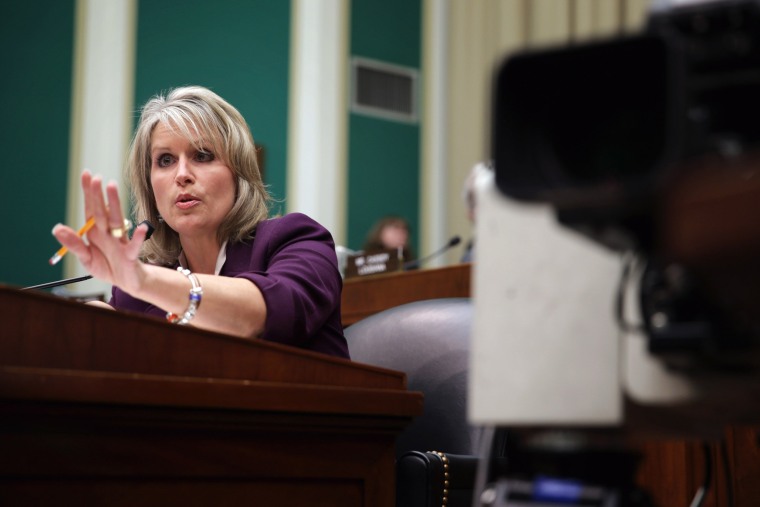The Washington Post recently noted in passing that the 2016 campaign season is being shaped by "voter fury" and "angry voters." Slate's Jamelle Bouie called it the year's "great cliché": the notion that "there's an anti-establishment mood," driven by Americans who "just aren't going to take it anymore."
And yet, there's quite a bit of evidence to the contrary. President Obama's approval rating, for example, has improved considerably this year, which isn't what we'd expect from a furious electorate. And while Congress' support is still woeful, congressional incumbents have fared well in 2016 primaries.
In fact, it's worth pausing to appreciate how well.
As we discussed in April, if the conventional wisdom were true, we'd expect to see furious voters, desperate for radical and revolutionary changes, kicking out congressional incumbents. After all, if the electorate believes a rotten establishment needs to be overturned, it stands to reason sitting members of Congress would be among the first to go.
But that's not happening at all. Kyle Kondik noted this morning in Sabato's Crystal Ball that House incumbents are "168 for 170 in primaries this year."
That's very much in line with history: More than 98% of House incumbents who sought re-nomination got it in the post-World War II era. This cycle's tally does not include California, where all 49 House incumbents who sought another term advanced to the November general election after finishing in the top-two of their all-party primaries. These are not traditional primaries, but one can consider advancing to the second round akin to winning a primary.
And what about the two incumbents who lost? Rep. Chaka Fattah (D-Pa.) came up short in an April primary, not as some kind of backlash against the status quo, but because the Philadelphia-area congressman is facing a 29-count criminal indictment. The establishment, in this case, rallied behind Fattah's Democratic primary rival, who won easily.
Rep. Renee Ellmers (R-N.C.) became the first congressional Republican to lose in a primary, failing badly this week despite an endorsement from Donald Trump, but she lost to another sitting U.S. House member: they were pitted against one another as a result of redistricting.
All told, this isn't evidence of a throw-the-bums-out attitude; it's evidence of the opposite. Given the circumstances, Ellmers' loss this week looks like the exception that helps prove the rule.
But if the conventional wisdom about "voter fury" is wrong -- or at a minimum, if this anger hasn't yet manifested itself in any congressional elections -- what explains Donald Trump? I realize the general assumption has long been that the "angry" electorate has fueled Trump's rise, but the congressional primaries undermine the thesis.
At the risk of oversimplifying, I think it's more likely that Trump has thrived with Republicans because Republican voters like what he's selling. It's less the result of anger and more the result of a GOP candidate offering unapologetic, race-based nationalism -- and the right embracing this with unnerving enthusiasm.
